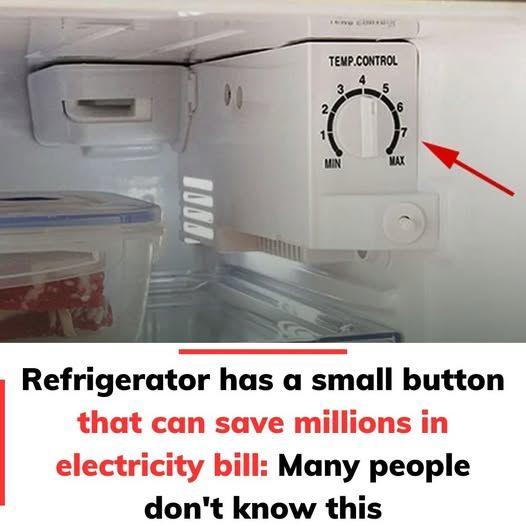ADVERTISEMENT
Save a Ton of Money on Electricity: Simple Tips to Lower Your Utility Bills 💡💸
Electricity bills can often take a significant chunk out of your monthly expenses, but with a few smart changes around the house, you can save a ton of money without sacrificing comfort. From small adjustments in how you use appliances to more efficient habits and upgrades, there are plenty of ways to keep those bills in check. Here are some easy and effective tips to help you reduce your electricity usage and save money in the process!
1. Switch to Energy-Efficient Appliances
If you’re still using older appliances, you may be wasting electricity without even knowing it. Energy-efficient appliances, marked with an Energy Star label, consume far less power than their older counterparts, which can lead to significant savings over time.
What you can do:
- When it’s time to replace your fridge, washing machine, or dishwasher, look for the Energy Star certification.
- Upgrading to an energy-efficient air conditioner or heater can drastically cut your electricity costs, especially during extreme seasons.
Although these appliances might cost a bit more upfront, they’ll pay off in the long run with lower energy consumption.
2. Unplug Electronics When Not in Use
Many electronics continue to consume energy even when they’re turned off—this is called phantom load or vampire power. Items like televisions, computers, chargers, and kitchen gadgets can all silently drain power.
What you can do:
- Unplug devices like phone chargers, laptops, and TVs when you’re not using them. Or use a power strip that you can easily turn off.
- Consider using smart plugs that can automatically cut power when not in use.
Small changes like these can lead to noticeable savings over time.
3. Switch to LED Bulbs
Lighting accounts for a significant portion of household electricity use. If you’re still using traditional incandescent light bulbs, you’re likely spending more money than necessary on electricity.
What you can do:
- Replace old bulbs with LED bulbs. They use up to 75% less energy than incandescent bulbs and last up to 25 times longer.
- Install motion sensors or timers to ensure lights aren’t left on unnecessarily.
The energy savings from switching to LED bulbs are immediate and long-lasting, making this one of the easiest changes to make.
4. Use Your Appliances Wisely
It’s not just about having energy-efficient appliances—it’s also about using them wisely. Certain habits can help you make the most of your devices while reducing their energy consumption.
What you can do:
- Run full loads in your dishwasher and laundry machine. Running partial loads uses more energy per item.
- Use the drying cycle on your dishwasher and the low heat setting on your dryer sparingly, as these use a lot of electricity.
- Wash clothes with cold water instead of hot, and line dry whenever possible.
Small adjustments like these can make a big difference in your monthly bill.
5. Seal Gaps and Insulate Your Home
Did you know that your home could be losing up to 25% of its heating or cooling energy through gaps, cracks, and poor insulation? This leads to your HVAC system working harder, thus using more electricity.
What you can do:
- Seal windows and doors with weatherstripping or caulking to prevent drafts.
- Add insulation to attics, walls, and floors to help regulate indoor temperatures.
- Use draft stoppers on doors to minimize heat loss during the winter and cool air loss in the summer.
Proper insulation and sealing can lower your heating and cooling costs and make your home more energy-efficient.
6. Optimize Your Thermostat Use
Heating and cooling your home can account for as much as 50% of your energy bill. By using your thermostat wisely, you can save a significant amount of money each month.
What you can do:
- Adjust your thermostat by just 1-2 degrees. Lowering it in winter and raising it in summer by a few degrees can lead to savings without sacrificing comfort.
- Consider investing in a programmable thermostat that automatically adjusts the temperature when you’re not home.
- During the summer, use fans to circulate air and reduce the need for air conditioning.
By being mindful of your thermostat, you’ll reduce the strain on your HVAC system, saving both energy and money.
7. Embrace Natural Light and Airflow
Instead of relying on artificial lighting and air conditioning, take advantage of natural resources whenever possible.
What you can do:
- Open your windows and use natural ventilation to cool down your home rather than relying on air conditioning.
- For Complete Cooking STEPS Please Head On Over To Next Page Or Open button (>) and don’t forget to SHARE with your Facebook friends
